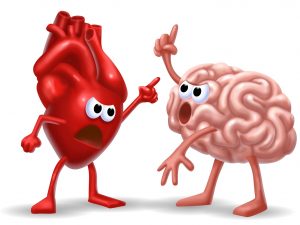 Stress is an inevitable part of life. Whether you’re stuck in traffic, running late for work, juggling a heavy workload, or dealing with family issues, everyone deals with stress in some way on a daily basis. However, since it can be hard to avoid stress, how you deal with it can impact the way it affects your health. A recent study has found that those with more reported stress had a higher risk of developing type 2 diabetes than those who had less reported stress.
Stress is an inevitable part of life. Whether you’re stuck in traffic, running late for work, juggling a heavy workload, or dealing with family issues, everyone deals with stress in some way on a daily basis. However, since it can be hard to avoid stress, how you deal with it can impact the way it affects your health. A recent study has found that those with more reported stress had a higher risk of developing type 2 diabetes than those who had less reported stress.
What is stress?
You may know what stress feels like, but do you actually know what it is? By definition, stress is the body’s natural defense against danger. Stress often occurs when a person is overwhelmed by the demands they face at any given time. In times of stress, the body releases certain hormones that prepare the body to deal with stress. Also, in times of stress, digestion slows, breathing quickens, and heart rate increases. This fight or flight response provides the body with the resources it needs to face any dangers.
Stress and diabetes
During the fight or flight response, the hormones released create a lot of energy that the cells can use. This energy comes in the form of glucose and fat. In those with diabetes, this fight or flight response may not always work so well. This is because insulin may not always be working well or be present at all to help the cells use energy. In turn, the glucose can build up in the blood.
Not to mention that stress can also increase blood glucose levels directly. Research shows that those with type 2 diabetes often have higher blood glucose levels when they experience stress. Also, those who experience stress may not deal with it in a healthy way. For example, some people may drink alcohol, smoke, or eat unhealthy foods when they feel stress. This in turn can increase blood glucose levels and negatively impact health.
Stress and diabetes research
A recent study by Chinese researchers looked at data from around 500,000 adults. This data included blood glucose levels, reported stress, and other related health data. Study results show that those who reported one stressful event had a 10-percent increased risk of developing type 2 diabetes compared to those who reported none.
This risk went up to 33-percent when a person reported two or more stressful events. Personal stress seemed to produce the highest levels of diabetes risk. This type of stress especially affected diabetes risk when it involved losing a job, retiring, or death of a loved one.
How to manage stress and diabetes
From these study results, it’s clear to see that stress has a direct link with diabetes risk. Now since you can’t control the stress that enters your life, but you control how you deal with it. Experts suggest that by better managing stress, you can lessen the impact it has on your health. Some examples of ways to cope with stress include:
- deep breathing
- gardening
- walking
- yoga
- meditating
- listening to your favorite music
- talking with a counselor or trusted friend or loved one
When you are better able to handle stress, you will be better able to handle your health. In other words, when you can manage stress better, you will likely be better able to take care of your health in other ways. You will likely move more, make healthier food choices, sleep better, and keep better track of your blood glucose levels. In turn, these healthy habits will help you better deal with your diabetes.
If you still feel like stress is keeping you up at night though, then try Somnova by Vita Sciences. Using natural ingredients like L-theanine and melatonin, Somnova works to relax your mind, produce peaceful sleep, and in turn help you feel refreshed. This improved sleep can help you to better manage stress in your life, and in turn lower your risk of type 2 diabetes.
-written by Staci Gulbin, MS, MEd, RD of LighttrackNutrition.com
References:
American Diabetes Association (last reviewed June 7, 2013) “Stress.” http://www.diabetes.org/living-with-diabetes/complications/mental-health/stress.html
National Institute of Diabetes and Digestive and Kidney Diseases (November 2016) “Managing Diabetes.”
Nordqvist, C. (last updated November 28, 2017 by Timothy J. Legg, Ph.D., CRNP) “Why stress happens and how to manage it.” Medical News Today
Wang, M., et al. (February 2019) “Associations between stressful life events and diabetes: Findings from the China Kadoorie Biobank study of 500,000 adults.” Journal of Diabetes Investigation, https://doi.org/10.1111/jdi.13028
 Do you get cramps in your side after eating certain foods? Do you feel bloated, gassy, or suffer from constipation? If so, then you may have an imbalance in your gut bacteria. Probiotics may be able to help you improve your digestive health.
Do you get cramps in your side after eating certain foods? Do you feel bloated, gassy, or suffer from constipation? If so, then you may have an imbalance in your gut bacteria. Probiotics may be able to help you improve your digestive health.
